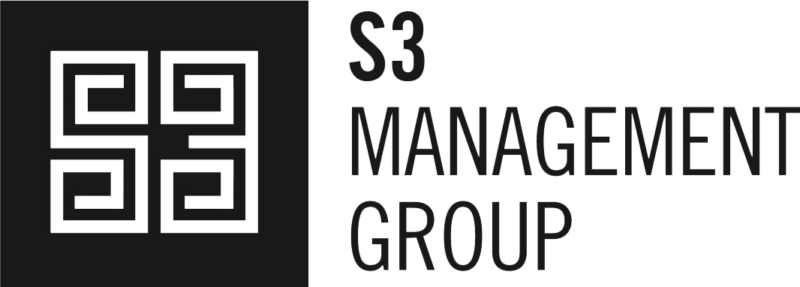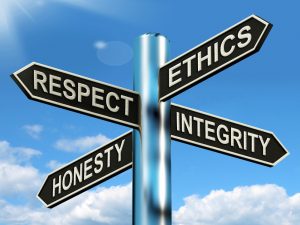As a Tribal HR manager, you’re no stranger to wearing a lot of hats. You embrace your role as organizational nucleus and master of moving parts. From employee training and development to compliance and performance management, you take pride in administering a host of critical functions. But perhaps the most influential role you play in Tribal HR is the steward of ethics. After all, a strong code of ethics is the bedrock of any successful workplace.
Why are Ethics Important in Tribal HR?
What do prosperous and sustainable tribal organizations have in common? It’s simple – they have a clear, sound, and collectively-supported set of ethical standards woven into the fabric of their culture. Without well-defined values and conduct codes in place for everyone in the hierarchy, it is a challenge for any organization to avoid common pitfalls including legal issues, a decline in employee morale, and damage to the company brand and reputation.
As a Tribal HR professional, you play an integral role in creating and enforcing an ethical infrastructure. You are a trusted liaison between upper management and employees, and you interface with everyone on staff. And most importantly, you manage key practices and systems including recruiting, conflict resolution and appraisals among other responsibilities.
But merely crafting and communicating your organization’s ethical and professional standards isn’t enough. When it comes to ethics, communication without action won’t cut it – as an HR professional, you must walk the walk.
Create a Code of Ethics for Your Tribal Organization
The first step in fostering ethical workplace behavior and practices is to create a mission statement that reflects your organization’s values, contributions, and commitment to the organization on a holistic level. The statement should be both visible and accessible to all staff.
The Society of Human Resource Management (SHRM) devised a comprehensive Code of Ethics that addresses the critical tenets of an ethical organization including:
- Professional Responsibility & Development
- Leadership
- Fairness
- Conflict of Interest
- Use of Information
This resource, along with the National Native American Human Resources Association’s NNAHRA Statement of Ethics, offers insightful information that may be relevant to your own Tribal HR department’s standards and goals.
Caution—Ethical Hazards Ahead: How to Avoid the Slippery Slope
The adage “with power comes great responsibility” certainly rings true in matters of Tribal HR. Not only are you on the front lines when it comes to establishing a code of ethics for your organization, but you are also required to uphold and enforce it.
Failure to abide by the ethical standards in place can yield serious implications including financial penalties, poor reviews, and internal collapse of culture and trust. It is crucial that in the face of pressure or dilemma, you remain steadfast in living your ethical code and avoiding the slippery slope that can threaten so many Tribal HR professionals.
Let’s examine two scenarios that present ethical dilemmas commonly faced by Tribal HR managers.
- Drinking with Your Employees. A staff accountant announces on Monday morning that she got engaged over the weekend. A group of employees suggests they go to a bar after work to celebrate, and they invite you to come. Do you join them in a night of drinking?
- Appraisal Discrimination. A valued employee tells his manager that he is going to resign because he received a much better offer from another company. In a desperate attempt to retain the employee, the manager asks you to immediately offer him a steep raise, one that is well outside of the approved company budget, and to offset the cost by giving a lower rate to another employee when it comes time for her performance appraisal. Do you comply with the manager’s demand?
Did any of these situations sound familiar to you? If so, you’re not alone. To avoid putting yourself or your organization in a precarious position when presented with an ethical dilemma, ask yourself the following 6 questions.
- Is it legal? (consult with Legal counsel for guidance.)
- Am I complying with policy? (Review and confirm policies.)
- Is it aligned with our values? (Consult with your organization’s handbook and discuss with an appropriate manager.)
- Could it result in harm to someone else? (Recognize and assess all possible consequences.)
- Would I feel comfortable if everyone knew? (Is this something you’d openly share with a friend, family member, or respected colleague?)
- Would I feel comfortable if everyone did it? (Present the situation to an objective listener or personal advisory board.)
This brief assessment is the easiest way to keep you accountable and guide you in making ethical decisions as a Tribal HR professional. If you answer no to any of the self-check questions, you know that you’re playing with fire and potentially proceeding with the wrong course of action.
Remember, as a Tribal HR manager, one misstep can have a ripple effect and adversely impact the health and success of your entire organization. S3 Management can help. Call us today, and we’ll help you and your Tribal HR team benefit from implementing a strong code of ethics in the workplace.

